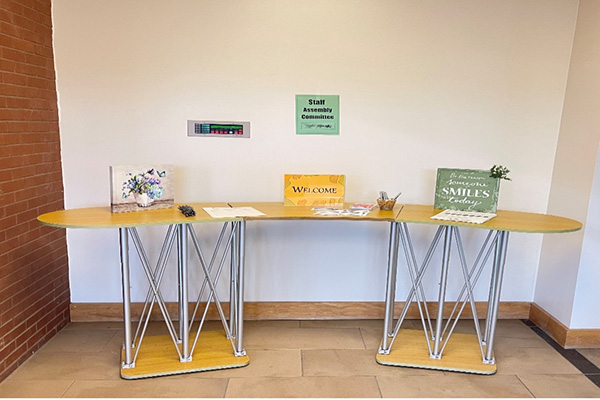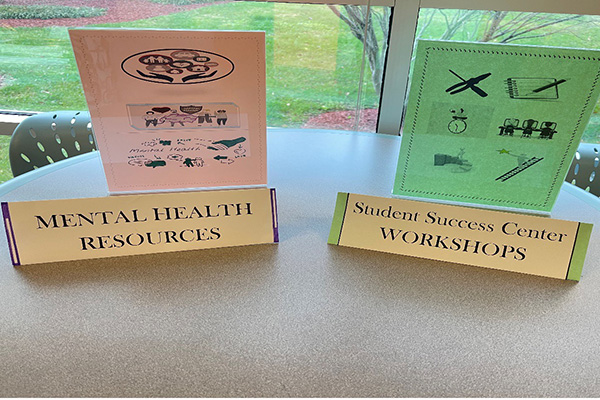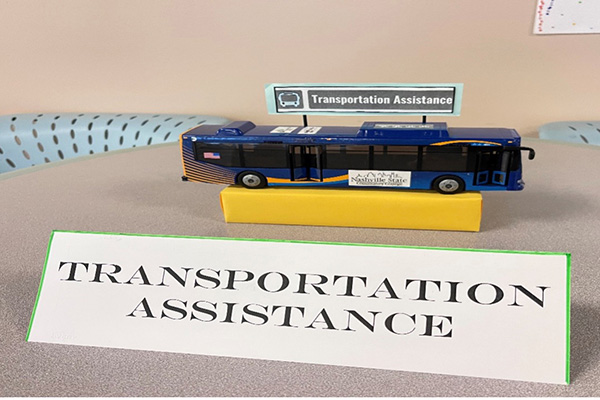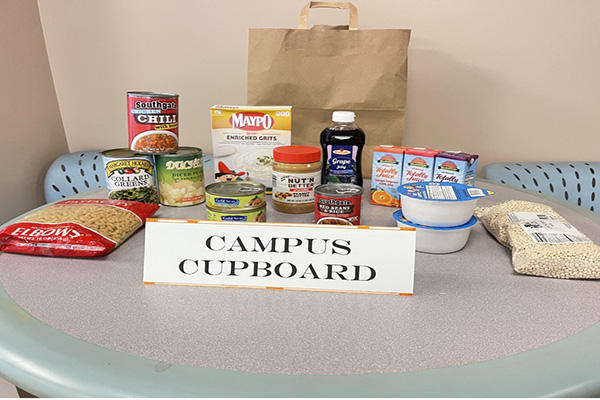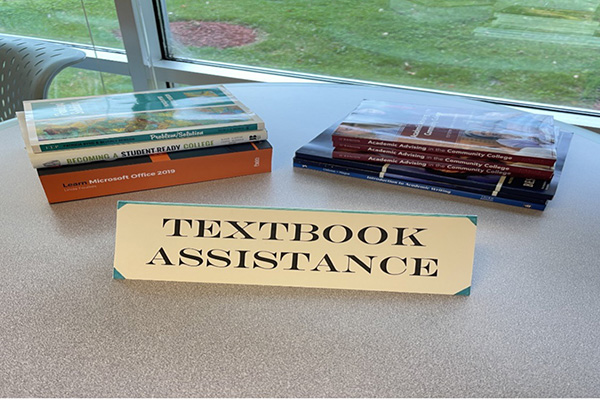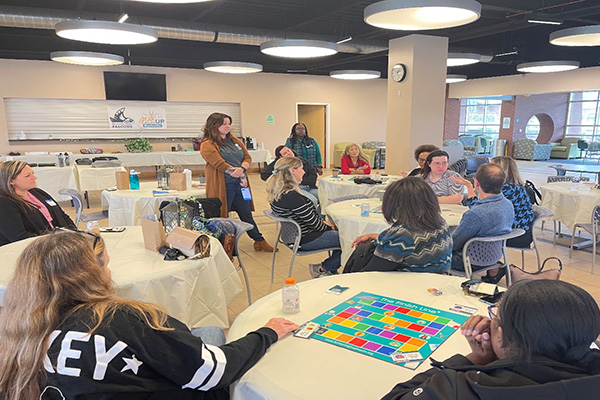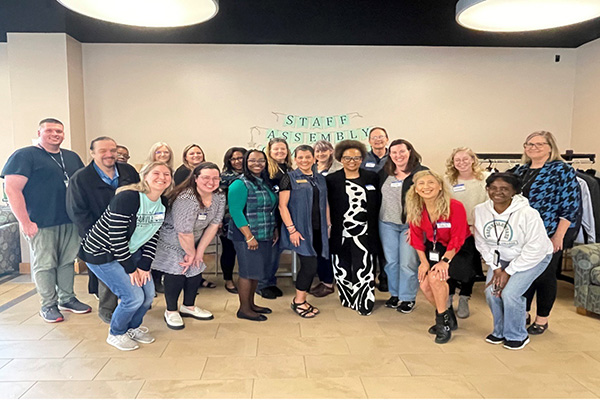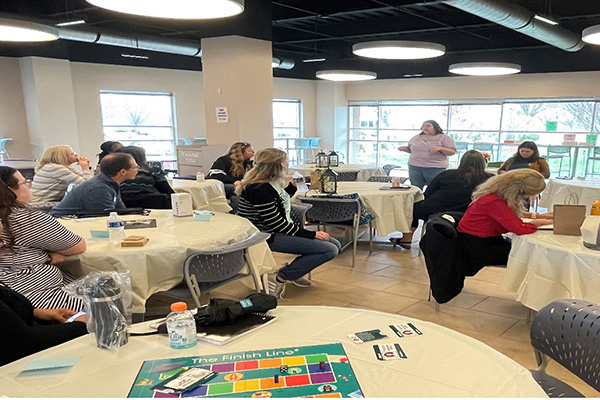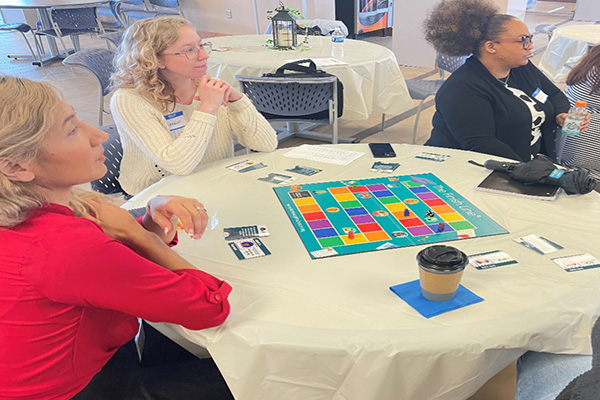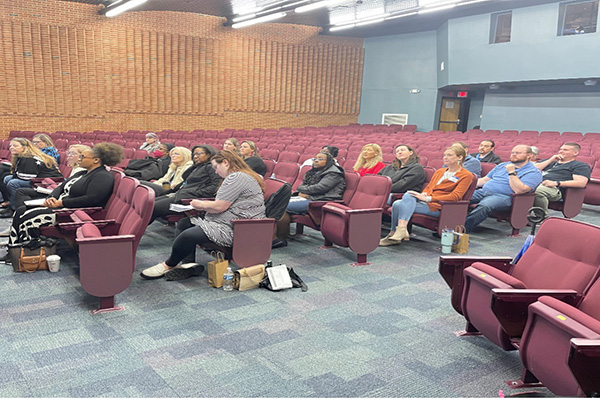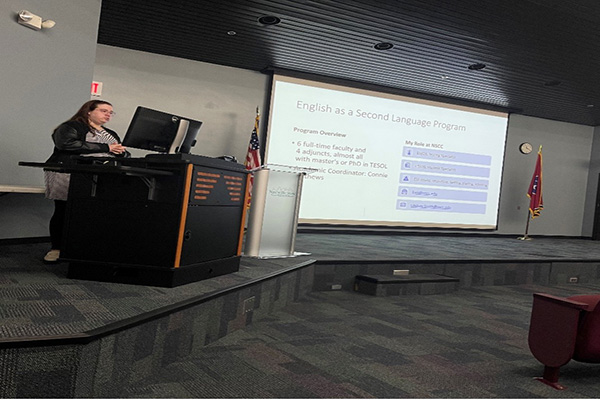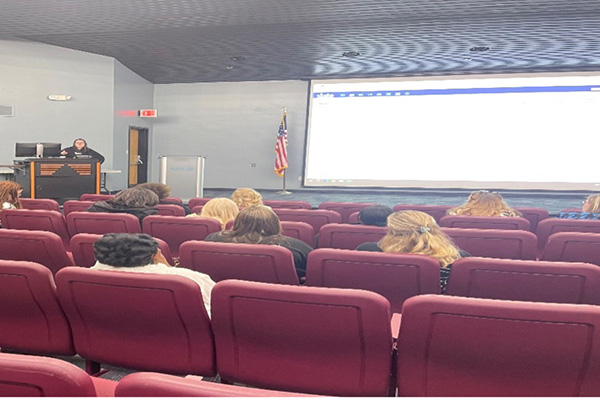
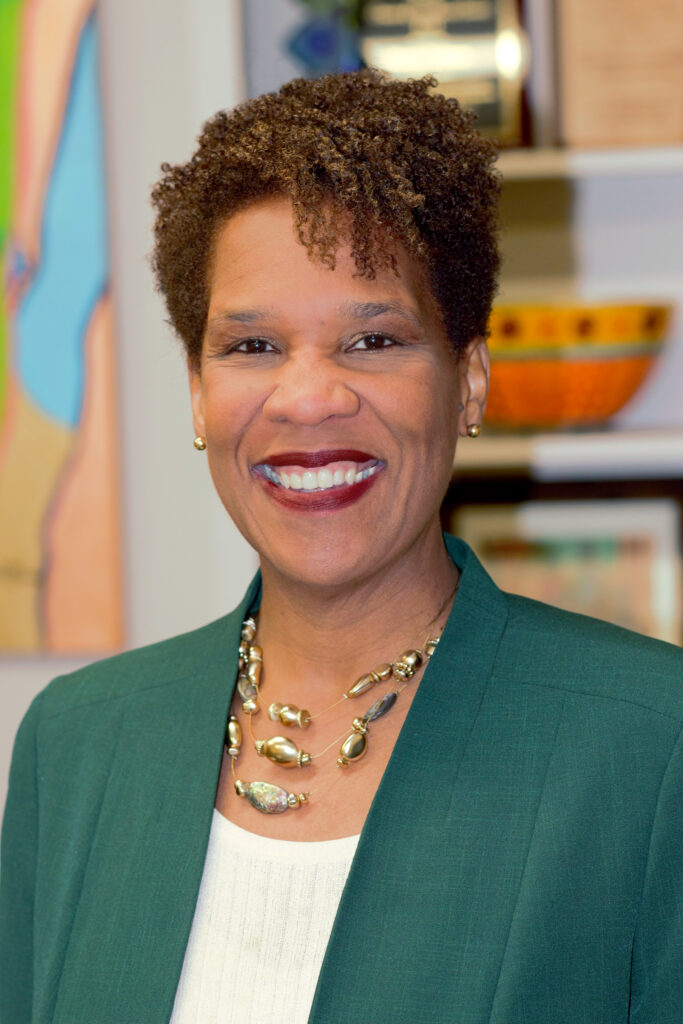
Update from the President
by Dr. Shanna L. Jackson
Greetings Fellow Falcons,
During the month of March, I had the opportunity to visit our Dickson and Humphreys County Campuses. It was a strong reminder of how important Nashville State is to our more rural communities. At Humphreys, two students were excited to share that they had been admitted into Belmont University’s School of Nursing. At Dickson, I had the opportunity to talk to a mother of four who is using Tennessee Reconnect to finally achieve her dream of completing a college degree. We are opening the door to opportunity and changing lives!
Below are a few updates for the Office of the President:
Office of the President Searches – The Vice President for Student Affairs and Enrollment Management Search is ongoing. Tentative dates have been scheduled in April for on-campus interviews. We will soon begin searches for the Executive Director of the Foundation and an Administrative Assistant. Cecily Freeman who has been a difference maker in the Foundation has announced her plan to depart on June 30 and Patsy Ham is returning to Georgia.
Clarksville Update – I have great news to share! We are in budget and moving forward with the Clarksville expansion. A tentative groundbreaking date has been set for May 15.
Virtual Summer Fridays – Virtual Fridays are returning to Nashville State this summer. Students and the community will continue to be served virtually on these days. Virtual Fridays will be in effect May 10 through July 26. Supervisors will direct where employees report to work on the specified Fridays. See our Campus Contact page for specific information on how to connect with our departments. There are a few pre-approved exceptions for events on Friday. We will evaluate the virtual schedule again to ensure we are meeting the needs of our students and that college operations are not impacted. Communication to students will be shared prior to May 3.
Enrollment Update – 2nd 7-week classes are underway. Compared to last year we are up 4.8% in headcount and 7.2% in FTE. Outstanding news and a good trend for the college as it builds on a fall enrollment that was up 3.9% headcount and 3.6% FTE from the previous year. Stay data informed with our data dashboards:
- Spring 2024 Dashboard
- Enrollment Profile Dashboard (Fall and Spring)
- Persistence-Retention-Graduation (PRG) Dashboard
Support – Please reach out to the resources available if you or someone you care about needs support. EAP services are offered at no cost to all benefit-eligible employees and eligible family members. Visit Here4tn.com for more information.
Nashville State is continuing to build a culture of Excellence in People, Places, Programs and Partnerships. The Voice publications are full of the wonderful things happening at Nashville State. I invite you to contribute to the Voice and share the good! As I believe there are many things happening on our campuses and within departments that are not being shared. As always, it is going to take all of us to achieve Vision 2030: A Student Ready College. The key to our LEADS Core Values is staying committed and consistent. We are Moving Forward!
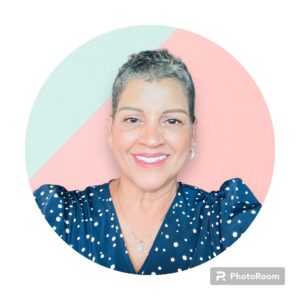
Staff Assembly Committee News
By Karina Davis, Chair, Staff Assembly
Greetings Nashville State family!
Staff Assembly hosted its Student Success Experience Training Day Part II on Wednesday, March 6th, 2024, during our Spring break at the main campus.
The purpose of this training day was to bring college staff together, give them a break and teach them important information that would enhance their knowledge for daily task performance.
The objective of the training day was to familiarize participants with the resources available to them, as well as to encourage them to identify the needs of our students and the general public.
Below are the materials that were covered during the training day:
- Adult Learners by Dondi Sanders (Dickson campus)
- SLATE by Laura Moran (WBR campus)
- ESL Overview by Lindsay Smith (Southeast campus)
- Finish Line Game by Kelsey Johansen (WBR campus)
- NSCC Resources and Support Assistance by Courtney Woodard (Southeast campus)
I would like to express my gratitude to Dr. Jackson for her presence, support and kind words to all of us. I also want to extend my appreciation to the following individuals:
Cindy Moore, Rebecca Girgenti, Sue Belcher, Kelsey Huffman, Reggie Keller, Jamie Break, Nicole Hubbs, Maintenance department, Justina Rogers, Evelyn Hadley, Nataly Olsen, Tom Hayden, Kelsey Johansen, Laura Moran, Lindsay Smith, Dondi Sanders, and Courtney Woodard.
Thank you-Gracias!
Staff Assembly is a place for full time or part-time non-faculty staff members, consider joining us. Membership is open to staff on every campus, we meet virtually on Microsoft Teams every third Wednesday of each month.
If you want to be a part of Staff Assembly, please email karina.davis@nscc.edu. I will make sure you receive the invitation to our next meeting.
Share your voice! Cast your vote! Make a difference!
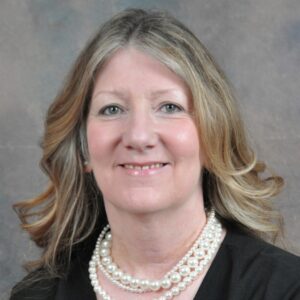
IPCT Program at Humphreys County Campus
By Telaina Wrigley, MSM, Campus Director / Associate Dean, Dickson Campus
As a part of our continued commitment to the Humphreys County and surrounding communities, Danny Sensing, Director of the Industrial Process Control Technology (IPCT) programs remains actively engaged in providing opportunities to partner our IPCT students with local businesses.
Mr. Sensing, along with Chemours’ Human Resource Manager, Tonia Brown-Thomason and Maintenance Reliability Manager, Richard Rose as well as Jones Plastic and Engineering’s Human Resource Manager, Joann Hardin and Maintenance Supervisor, Jeff Spring conducted interviews with 11 potential apprentices who will work in one of the two business represented. Of the 11 interviewed, we are excited to announce that nine were selected.
And to continue the support for our IPCT students, Mr. Sensing, along with the Executive Director of the Humphreys County Economic Development, Ted Moore, coordinated with an organization called Be Pro Be Proud, which allows students the opportunity to virtually experience many of the skills they will obtain in our IPCT program. This event was a four-day event at our Humphreys County Campus, and our staff hosted close to 600 students from the local schools, ranging from 8th grade to seniors in high school. Our own Dianna Shanks also provided the students with information related to admissions and financial aid. TVA and OxyChem were also on site for the four days to provide the students with information about their organizations and generously gave each of the students a gift. This event also allowed us to support some of the local food trucks in the area, making for a well-rounded community event.
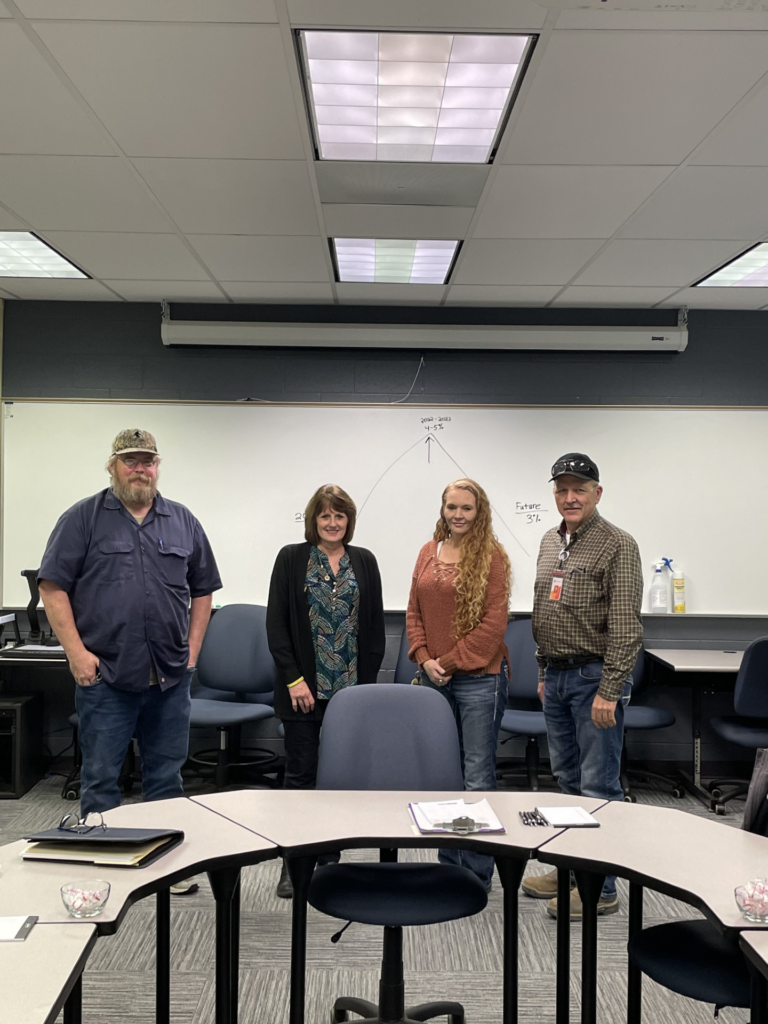
Pictured from left to right are: Jeff Spring, Joann Hardin, Tonia Brown-Thomason, Richard Rose
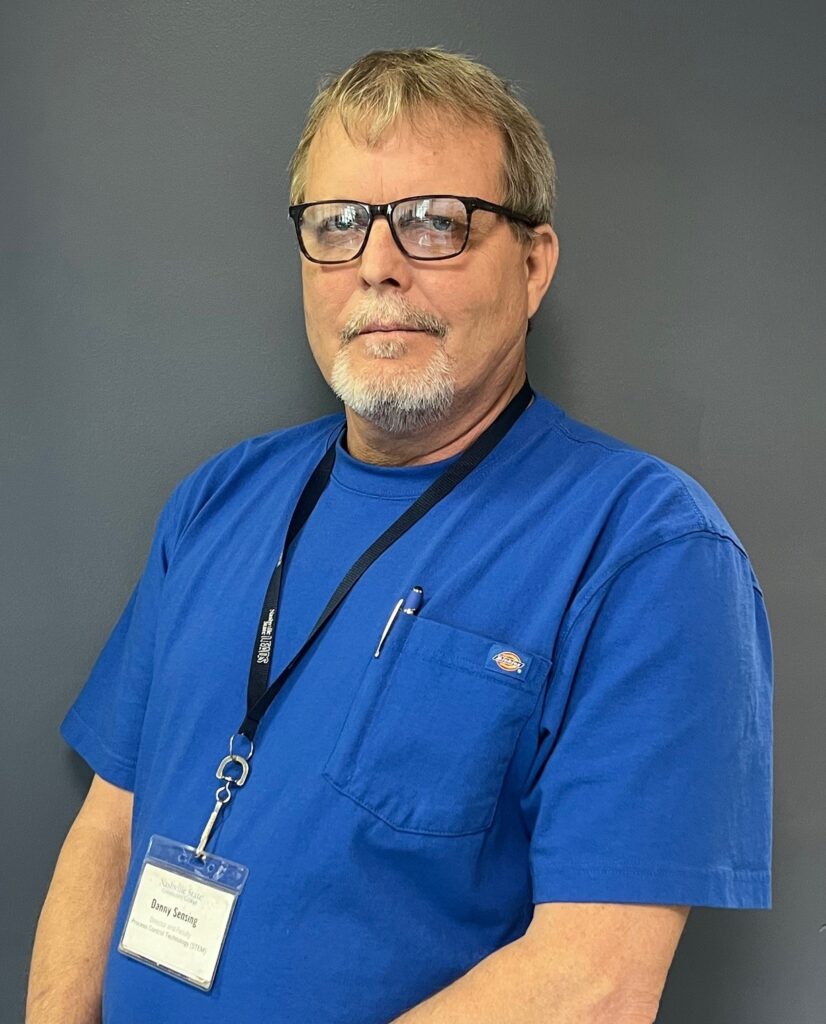
Danny Sensing, Director of IPCT
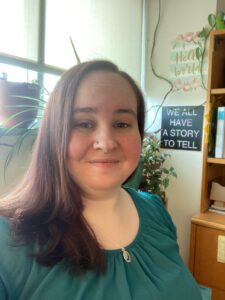
10 Tips for Financial Literary Month
By Rosemary Hackney, Assistant Director, Regulatory Compliance, Financial Aid Office
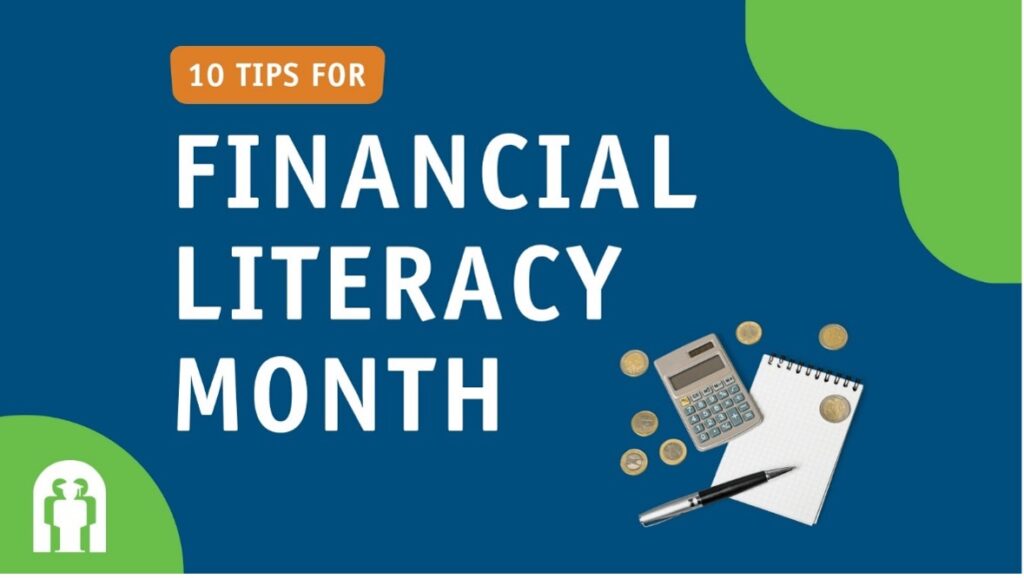
April is National Financial Literacy Month. As part of the celebration of this, the Financial Aid Office would like to share some tips from NASFAA, the National Association of Student Financial Aid Administrators.
Making smart choices with your money doesn’t stop with paying for college — students need to be educated about managing their financial lives outside of school, too. Take a look below for 10 tips you can share with your students this Financial Literacy Month.
- Create a budget: Start by calculating your monthly income and expenses. Use this information to create a budget that works for you.
- Track your spending: Keep track of every dollar you spend to help you stick to your budget.
- Smart debt: If possible, avoid taking on debt. If you must take on debt, be aware of interest rates, and make sure payments fit into your budget.
- Save for emergencies: Set aside some money each month in case of emergencies.
- Save for the future: Start saving for retirement as early as possible to give your money time to grow.
- Live within your means: Try to live within your means by avoiding unnecessary expenses and making smart purchasing decisions.
- Plan for big expenses: Whether it’s a down payment on a house or a new car, plan ahead for big expenses by saving up and making informed decisions about financing options.
- Be mindful of credit: Behaviors that lead to carrying monthly balances and spending more than you otherwise would with cash or a debit card can lead to more financial problems than if you avoided using credit altogether.
- Educate yourself: Learn about personal finance and investing so you can make informed decisions about your money.
- Ask for help: Don’t be afraid to ask for help from a financial advisor or the financial aid office at your school.
While it is not included in this list, it is also important to remember that it is okay to “mess up” with a budget. Just because you have a setback, it doesn’t mean you can’t try again next month or the next pay period. Sometimes, it is about making the little changes that can lead to the overall financial knowledge that will help you build a financially independent life. Budgeting is a learned skill and it can take time and practice to learn how you can best utilize your money and knowledge.
Here are some free resources to create templates for crafting a personal budget:
https://create.microsoft.com/en-us/templates/budgets
https://www.canva.com/templates/s/budget/
We would also like to share some upcoming webinars from Educational Credit Management Corporation (ECMC) which is a nonprofit corporation that is one of the guaranty agencies for the US Department of Education loans.
ECMC Resources
April 3
This webinar will provide an overview of ECMC’s free student success and outreach resources including, college planning guides, college planning nights, FAB Life, and our national training curricula for middle school, high school, and college educators. Join us to learn more about these no cost resources. Register
Understanding Credit Scores
April 17
Consumer credit scores range between 300–850 and represent a consumer’s credit risk or the likelihood of paying bills on time. The higher the score, the better a borrower looks to potential creditors and lenders. The score is based on criteria including number of open accounts, total levels of debt, repayment history, and other factors. Potential creditors use credit scores to evaluate the probability that consumers will pay bills on time. Join us to do some sleuthing on what makes up your credit score and how best to build and manage credit. Register
Building and Maintaining Your Basic Needs Program
May 1
Hunger and food insecurities touch millions of Americans. College campuses are especially hard hit. As a college education becomes less affordable, more students are forced to look for alternative basic needs resources. Our guest presenters will share firsthand experiences on how to successfully set up and maintain a campus pantry, develop resources, add wrap-around services, and track and report on your efforts. Register
The Cash Back Savings Game
May 22
As prices for everyday items continue to rise while wages remain stagnant, it’s harder every day to meet even basic needs. In this session, we will look at some cash-back apps and cost saving strategies that can help us all save money. Register
Establishing Good Money Habits
May 29
While there is little we can do about the challenges facing the economy, there are slight changes you can make in your daily life to help bolster your financial future. In this webinar, we will look at daily practices to establish good money habits. Register
Planning Ahead for Aging Adults
June 26
It’s never too early to begin making difficult decisions that we will all be faced with at some point in our lives. We will dive into a brief overview of benefits, and then an overview of documents to have in place before retirement. Register
You can register for these webinars at www.ecmc.org/training.

College Purpose and Relevance
Jessica Rabb, PhD, Professor of Biology, STEM
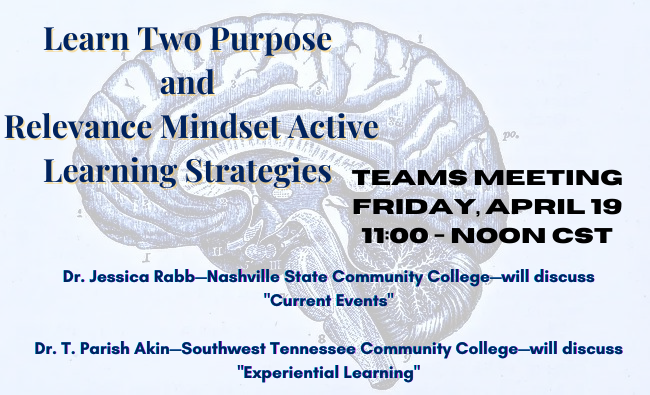
I work with my colleague Parish Akin of Southwest TN Community College as a High Impact Practice (HIP) Ambassador for the College System of Tennessee (TBR). We try to show TBR faculty and staff that our efforts to engage students in the value of college in a First Year Experience class like our NSCC 1010, may also be implemented in academic classes.
The “First Year Experience” is an entire year while NSCC 1010 is only five weeks long. Our first-year students need our help navigating their college pathway throughout the first year. There are things we can do in our academic classes to help them connect their time spent on academics to their degree and career goals.
Consider this pathway work, as paying it forward, because ultimately Nashville State’s success depends on helping students obtain degrees, not just completing a single class.
There are fourteen HIP ambassadors, and we host Connection Calls, live virtual workshops, open to all of our TBR colleagues to promote HIPs and Academic Mindset. Parish and I have a Connection Call coming up.
Learn Two Purpose and Relevance Mindset Active Learning Strategies
TBR HIP Ambassadors: First Year Experience
- Dr. Jessica Rabb – Nashville State Community College – will discuss the use of Current Events
- Dr. T. Parish Akin – Southwest TN Community College – will discuss Experiential Learning
Teams Meetings Friday, April 19 11:00am to noon (CST)
Look for more information on HIPs and the HIP Ambassador Connection Calls at the TBR HIP Website. Connection Call topics, times, and links are also included in Nashville State’s professional development calendar in Outlook.
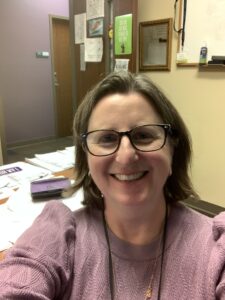
People We Meet in the Hall
By Gracie Andrews King, Ph.D., Associate Professor of Biology, STEM
Some of the people we meet in the hall need a few extra steps to prepare them for the challenges of college education. Associate Professor Katherine Sorenson was kind enough to share questions with her students as an extra credit assignment. Melanie, Mon, Hughes and Martin are four students in Reading Support classes who are putting in the extra effort needed to climb the mountain towards their degree. These students are pursuing their goals and dreams with determination and hope. If you meet them in the hall, give them an encouraging smile. Their journey is a long one.
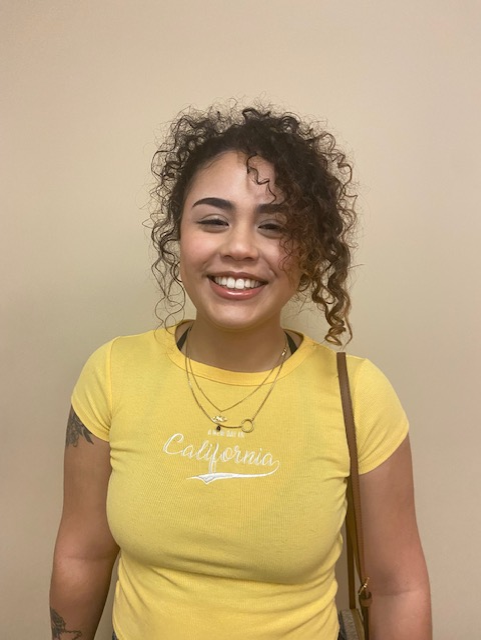
Melanie Alvarez
- Have you lived anywhere other than Nashville? If so, where have you lived?
I lived in Hollywood Florida till I was 4 or 5 and then we moved here. - If you have moved to Nashville from somewhere else, what circumstances brought you to Nashville?
We moved here because my mom fell in love with my stepdad! - Why is getting a college education important to you?
Because I really want to be a veterinarian - Why did you choose to take classes at Nashville State Community College?
Because I didn’t want to pay a lot of money and I used to go to school right next to Nashville State - What are two things that get in the way of doing better in your classes or make it very hard to get the grades that you want to get?
My laziness, If I really put my all into it, I know I can do it - What keeps you motivated to wake up every morning and go to school, even if you are tired? What do you tell yourself when you feel like it is too much and maybe you want to quit?
That I paid $1,366 but also the fact that I want to take care of dogs for a living.
I tell myself that I want to be rich and I want to have the life I’m dreaming of. - Describe two good experiences that you have had since you have been taking classes here.
I get to study with my friends. I get to go to museums for school. - If you were granted three wishes and you could wish for anything you wanted, what are three things that you would wish for that would help you achieve your goals at Nashville State? (*You can wish for ANYTHING, no matter how crazy.)
I wish that I was good at math. I wish I had an srt, that would definitely motivate me to come. I wish I got my FAFSA back ;( - 9. Who is your favorite musician/band?
I like future, Moneybagg yo, and Karol G - 10. What is your favorite movie or TV show?
I really like Bojack Horseman and Tokyo Ghoul. - Is there anything else you would like to share about yourself?
I want to have a vet clinic with a farm next to it, and I want to travel the world!
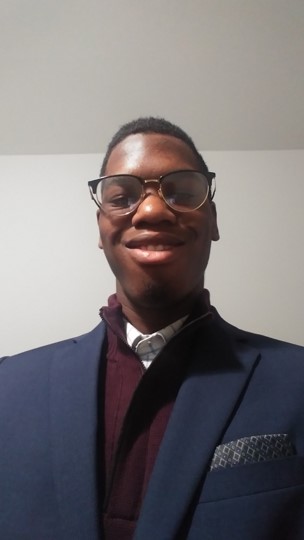
Hughes N’sumbu
- Have you lived anywhere other than Nashville? If so, where have you lived?
I was born in Africa. I moved to the United States 25 years ago. Upon my arrival, I lived in Raleigh, NC for a short period of time. My relatives decided to move to Nashville because of his church and the cost of living was better. At that time, Nashville was considered as a small city compared to others, but anymore. Nashville expanded so fast in the last 15 years and continues to grow. - If you have moved to Nashville from somewhere else, what circumstances brought you to Nashville?
When I moved to Nashville, 25 years ago, my relatives wanted to be here because of the growing community of our people. Another reason, Nashville was a small city, quiet, and a good place to raise children. Despite the growth we are witnessing, Nashville is a better place to work, to live, and to raise children. I like it here better than Raleigh, NC. - Why is getting a college education important to you?
Education is very important to me. First, college education prepares students for life. Second, college education offers more career opportunities than students with no college degree. Thirdly, earning a college degree is an accomplishment in life. It has been approved that people with college degrees earn 3 times more money than those with high school diplomas. - Why did you choose to take classes at Nashville State Community College?
Affordability is the main reason I chose to come here. Attending Nashville State will allow me to finish my two years without a debt. I will earn a degree and be able to get a good paying job. In addition, I can transfer all my credits to any university in Tennessee. I am so happy to be here. This is advice I give to people I meet, especially new immigrants. School reputation is the second reason. Nashville State Community College is a diverse school and has trained a lot of immigrants since its establishment. - What are two things that get in the way of doing better in your classes or make it very hard to get the grades that you want to get?
One thing that I find is getting in the way of doing better is being a full time student with a full time job. Academically, I do not have any problems with my grades. I have assistance with my professors anytime I need help. I also have resources available to students that I use. At Nashville State, students have all they need to succeed. - What keeps you motivated to wake up every morning and go to school, even if you are tired? What do you tell yourself when you feel like it is too much and maybe you want to quit?
The goals I have set to myself keep me motivated. America is a country of opportunities compared to where I came from. Even if i am tired, i do not have to quit. Quitting is not the solution. All I need to do is to work hard and achieve my goals. Sometimes in life, you have to sacrifice everything to get where you want to be. - Describe two good experiences that you have had since you have been taking classes here?
All my professors are my source of strength and motivation. Professors and staff on campus are working toward one goal to see students succeed. Nashville State is a wonderful school. I like the diversity that i see here. Students exchange their experiences in school and the country brings hope to others. This is why Nashville State is a place to be. - If you were granted three wishes and you could wish for anything you wanted, what are the three things that you would wish for that would help you achieve your goals at Nashville State? ( You can wish for anything, no matter how crazy.)
Working long hours for a living is a hurdle for me. If I had more income, it would have been easier for me to concentrate only on my studies. I also wish to have known the English language before moving to the United States. I finally wish to live close to the school, so i do not have to drive too far. - Who is your favorite musician/ band?
I like all kinds of music. My favorite is gospel music and Ceecee Winans is my favorite musician. - What is your favorite movie or TV show?
Sports Center is my favorite TV show. - Is there anything else you would like to share about yourself? Maybe something you think makes you unique or what your plans are for the future?
I do not have anything special to add. I am blessed to be in America. My plans for the future are to get a doctorate degree in Computer Science and be able to teach the next generation.
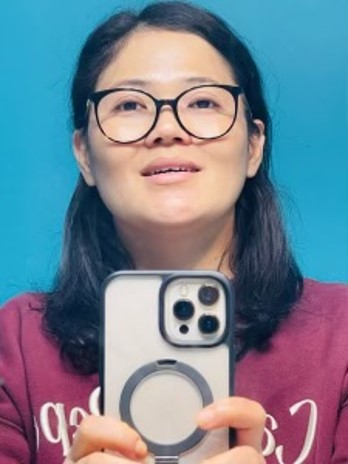
Mon Tamang
- Have you lived anywhere other than Nashville? If so, where have you lived?
Yes, I have lived in Kentucky for 4 years. - If you have moved to Nashville from somewhere else, what circumstances brought you to Nashville?
I am here to get married with my husband. - Why is getting a college education important to you?
A college education is very important for me because in college we have a great opportunity to learn about other cultures, explore unexpected jobs, meet new people, and make new friends. - Why did you choose to take classes at Nashville State Community College?
I choose to take classes at Nashville State Community College because Nashville State has a variety of resources to assist students, also Professors are very helpful and understanding. - What are some things that you do better in your classes?
There are many ways to do better in our classes. The most two important things is active involvement in class activities like listening carefully and note taking, actively communicating in class. - What keeps you motivated to wake up every morning and go to school, even if you are tired? What do you tell yourself when you feel like it is too much and maybe you want to quit?
My older daughter motivated me to wake up every morning, because she wants me to get a job in her school. - Describe two good experiences that you have had since you have been taking classes here.
During my listening speaking 3 class time in fall term, I had really best moments. I have never given class presentation before. I am English learner my English is not good enough to give presentation. I remember my first presentation in that class. When I was ready to present, I felt afraid. But I presented for 5 mins and felt good. - If you were granted three wishes and you could wish for anything you wanted, what are three things that you would wish for that would help you achieve your goals at Nashville State? (*You can wish for ANYTHING, no matter how crazy.)
I would wish that everyone in my family get good job, be rich, and be immortal. - Who is your favorite musician/band?
Nepali musician “The EKA BAND” - What is your favorite movie or TV show?
Hindi movie “Taare Zameen Par.” Every child is special. - Is there anything else you would like to share about yourself? Maybe something you think makes you unique or what your plans are for the future?
I am in this learning field to brings my dream true and to make my both daughters educator.
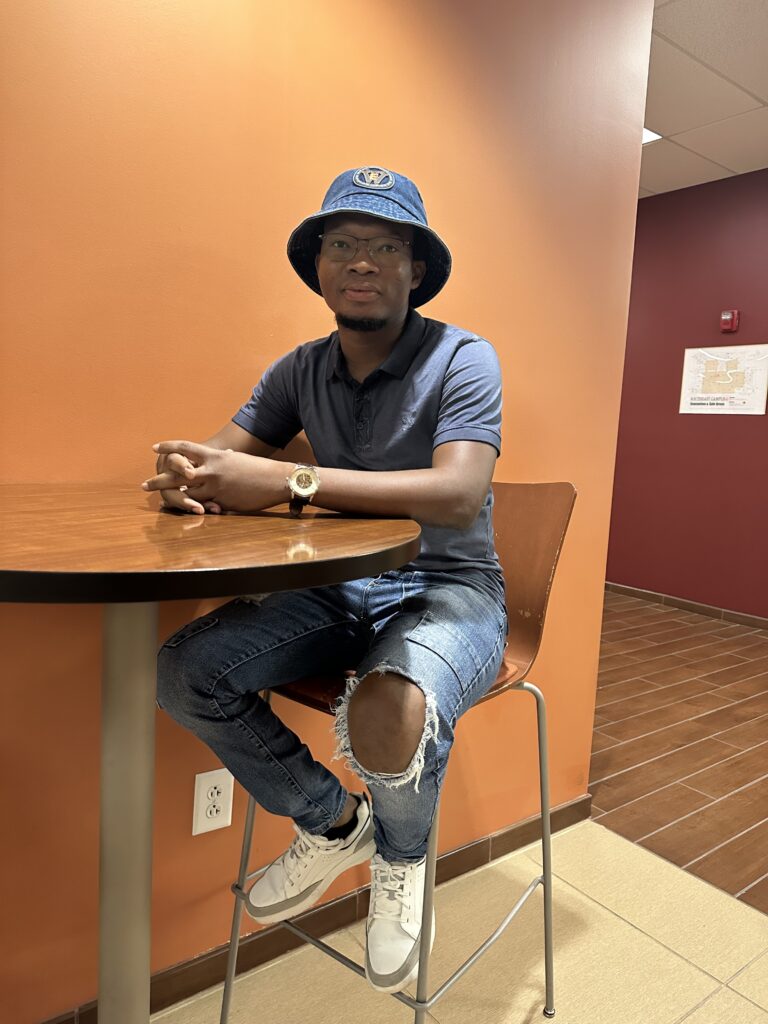
Martin Wandaogo
- Have you lived anywhere other than Nashville? If so, where have you lived?
For my first time in US, I landed and lived to New York before to move in Nashville. - If you have moved to Nashville from somewhere else, what circumstances brought you to Nashville?
I moved to Nashville for school. Also, New York is colder than Nashville and life is more expensive. - Why is getting a college education important to you?
Getting to college is important for me because I want to earn a degree to have more opportunities in my life and it is good have better integration. - Why did you choose to take classes at Nashville State Community College?
Nashville State Community College because tuition is affordable. - What are some things that you do to improve your grades?
Exercising myself by doing my homework, listening to the teacher and classmates help me do better and have good grades. - What keeps you motivated? What do you tell yourself when you feel like it is too much and maybe you want to quit?
Life is challenging. I cannot quit and I do not want to quit. - Describe two good experiences that you have had since you have been taking classes here.
1) Learn from people especially friends at school, one of my friends shared to me his Life experience for being student and parent at same time. He is making a good effort.
2) Since I have been taking class, I see how the faculty members help us (students) to succeed. They are available and give advice. It is a pleasant experience for me. - If you were granted three wishes and you could wish for anything you wanted, what are the three things that you would wish for that would help you achieve your goals at Nashville State? (You can wish for anything, no matter how crazy.)
I wish to stay healthy, patient, and focused. - Who is your favorite musician?
Smarty. He is a rapper from my country. - What is your favorite movie or TV show?
Power is my favorite movie. - Is there anything else you would like to share about yourself? Maybe something you think makes you unique or what your plans are for the future?
I am a less talked person. I know this can sometimes have a disadvantage for me, but it avoids me problems too. For my plans, I want to earn a degree in my major, after graduation try to find a job in my field to get more experience and later, I want to run my own business.
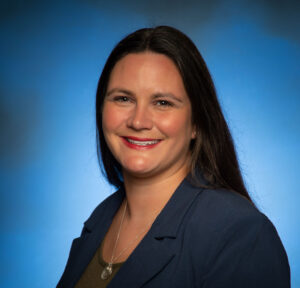
Faculty Earn ACUE Microcredential in Creating an Inclusive and Supportive Learning Environment
by Amy S. Bryant, Associate Professor of Communication Studies and Director, The Teaching Center
19 NSCC faculty have earned the ACUE Microcredential in Creating an Inclusive and Supportive Learning Environment. During this semester, these faculty have engaged in professional learning about creating inclusive and supportive learning environments, implemented inclusive and supportive practices in their courses, reflected on the impact of these practices, and planned for how to use these practices in their teaching moving forward. Teaching practices included focusing on leading the first day of class, promoting a civil learning environment, engaging underprepared students, helping students persist in their studies, embracing diversity in the classroom, checking for student understanding, and providing useful feedback.
Audrey Avery
Belkis Barrios Vickie Bissinger
Kristen Bradley
Courtney Foley
Michael Kiggins
Jennifer Knapp
Philip Lee
Diane Leonard
Eulunda Maxwell
Scott McRoberts
Zachary Mills
Barbra Mullaney
Eli Nettles
Eric Richardson
Marian Soliman
Dara Talibah
Breanna Waller
Beth Youngblood


Teaching to Learn, Learning to Teach: “Isolating the Variable”
by Harlan Pease, Associate Professor of Communication, EHCT
On February 19th, I had the pleasure of observing Professor David Jehle’s Introductory Statistics class at the North Davidson campus. I ended up having a fun and learning experience, and I also gained a perspective on teaching that will influence my approach for years to come.
First and foremost, I’d like to thank Prof. Jehle for letting me observe his class. He is an adjunct for Nashville State (and pretty much our math department at the North Davidson campus), and having someone come into his class to observe him was definitely going above and beyond the call of duty.
On to the class. It has been my experience that math classes tend to split roughly into “old business” and “new business,” with the old business section providing an overview of past concepts, an opportunity to ask questions about the homework, and time to deal with general logistics. The new business section introduces a new concept and then segues into solving examples and problems based on the new concepts. Prof. Jehle’s class followed this organizational strategy, opening with some general business, with a focus on an upcoming test. He made a point to emphasize, and reemphasize, the timeframe for taking the test (the test is online), and shared strategies for success. After a period of time for questions, he moved on to the new business.
For this class, the new business was permutations and combinations. In case your math is a bit rusty, a quick review: permutations and combinations are subsets selected from a larger set; with permutations, the order of selection matters, and with combinations, the order does not matter.
This is when Prof. Jehle’s approach really got interesting (at least for me). He spent a lot of time discussing the concept of permutations and combinations and the difference between them. He also focused on the language students might encounter in word problems, and gave specific instruction on what to look for to know the difference. You may (fairly) be wondering, “why is this interesting?” What I found interesting was the way the concept was very clearly presented, with a focus on simple language and examples, without getting bogged down in a discussion of factorials, choosing “r” items from a set of “n” items, and talk of binomial coefficients (I think that is relevant here).
I thoroughly enjoyed the presentation of the material, and as I looked around the room, I could see the students were engaging. They didn’t have that blank face that so often comes with getting bogged down in the representation of mathematical concepts; they were engaging with the concept.
Next, Prof. Jehle discussed factorials and the formulas involved for combinations and permutations; he went relatively quickly, and I assumed they must have covered factorials previously.
Then came the first problems involving calculation (as opposed to just choosing whether a permutation or combination was involved); my inner nerd dove in and started calculating. Here’s an example of my work:
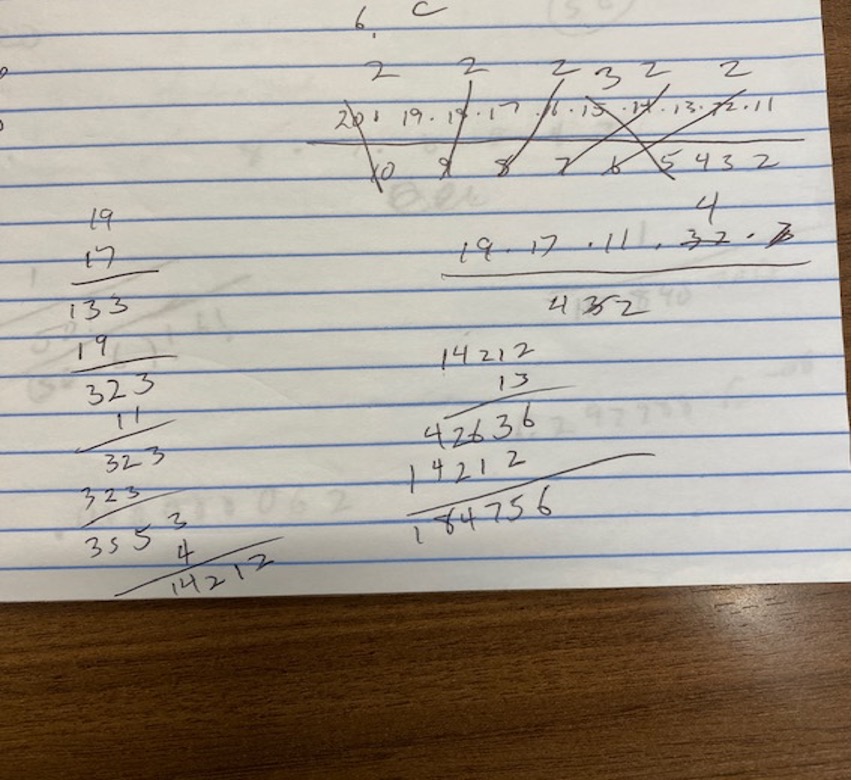
As you can see, I was having a full-tilt good time, kicking it old school.
Then I learned something new.
Apparently, Prof. Jehle didn’t need to get bogged down in a discussion of factorials, etc., because there’s this “new” technology that does the work for you:

Who knew?
Apparently everyone who has taught or taken a Stats class this century. That’s who knew.
This really, really got me thinking, and I’d like to elaborate on that because I think there’s something really beneficial there for all of us. But before I do, I would like to point out some other excellent things I observed:
- Students arriving late knew exactly what to do. Handouts were available on the shelf near the door, so students just picked them up and took their seats. This allowed the class to continue uninterrupted without the teacher needing to stop instruction to provide handouts. This is something I’m definitely going to start doing.
- Prof. Jehle effectively used handouts, the document camera, PowerPoint, and the whiteboard. This in and of itself might seem standard to many of us, but I enjoyed observing the division of information through the different media, particularly the use of handouts for information he wanted his students to have available after class was over. This relieved the students of the burden of multitasking to take effective notes, knowing they had information available in a handout format. This got me thinking about how to effectively leverage this strategy to bridge the gap between engaging and note-taking.
- Just like Prof. Ekther (from last month’s column), Professor Jehle had review built into the PowerPoint, giving students a chance to apply the concepts as they were learning.
Now, onward to the thinking that the calculator epiphany prompted:
Math teachers are really good at – pun intended – isolating the variable, and technology can help. For example, when I was learning permutations and combinations, there were two primary ways I could make a mistake: one, I confused permutation with combination, or vice versa; two, I made a calculation error (to be fair, I could have extracted the wrong data from the problem, but that would be far less likely at this level). However, with the calculator, the teacher has “isolated the variable,” as the calculation-error variable is effectively eliminated. If the student gets the answer wrong, they can just go back and check the problem, because the most likely error they made is incorrectly choosing whether it was a permutation or combination. This goes back to the way Prof. Jehle presented this class, and it speaks to the wisdom of spending so much time on the concept, because that is the variable being isolated.
Building on this, if a student can graph Y = 2X +3, and can also graph Y = X2, but struggles with Y = X2 + 3, or Y= (X-3)2 + 3, it’s pretty easy to isolate what went wrong. Not only is it easy to isolate what went wrong, it’s relatively easy to bring the student back to a place where they do understand, a safe landing place if you will, and then help them move forward.
This is very different than what happens in the classes I teach, and I suspect this is true for many of us. It’s really hard to “isolate the variable.” For the first assignment in Fundamentals of Communication, students are asked to select one element from one of two models and apply it to a real-life situation, determine what went wrong, and discuss how what went wrong could have been improved. I won’t go into all the details, but there are multiple variables involved here. For a few highlights, a student could understand the concept but mislabel it, or understand the concept but misapply it, or understand a concept but choose a real-life example that doesn’t work, or misread the instructions. etc.
Perhaps most frustratingly, a student could understand the assignment and the concepts but lack the ability to write a response in a way that demonstrates that full understanding. This could be a function of grammar, mechanics, a lack of understanding of how to create an argument, a language barrier, not understanding how to effectively use evidence and analysis, etc.
Additionally, these variables are not binary and they’re not mutually exclusive. There could be multiple errors and partial errors involved. Against the nearly infinite possible combinations of error, the teacher enters the arena with a 5 x 5 rubric and a comment box – and possibly 75 or more of these assignments to grade. It is a frustrating experience for the teacher, but it has to be more so for the student.
And, this is a relatively simple written assignment, compared to, say, an essay.
Part of this complexity, of course, is what defines college-level work. It is multivariate by definition. However, if our quest is to meet students where they are, I think it is important we are not eliminating some students from the game too quickly because of difficulty in isolating the variables relevant to what went wrong.
For perspective, it is not unusual for 50% of students enrolled in English Composition I to fail. If asked to explain this, the one variable I could readily isolate would be “the students didn’t do the work” – and this would generally be true. A smaller subset would fit into the “not ready for college-level work” variable. And while isolating those two variables would yield true results, doing so doesn’t necessarily yield useful results – such as information that helps me help my students be more successful in the next class.
There’s obviously no easy answer here, but I think it’s an interesting point of discussion we can use to guide some of the decisions we make regarding course objectives and competencies and how we align our curriculum and assessments with those objectives and competencies.
To be clear, this is not in any way a criticism of teachers. In a perfect world, this conversation needs to collaboratively happen at all levels, from TBR/state to department/teacher level. Example: If a student enters Composition I without the ability to construct an effective paragraph and/or a grammatically correct sentence, how much progress is it reasonable to expect? Is a researched argument essay with cited sources and MLA format utilizing grammatically clear college-level tone and diction reasonable? How would any teacher teach and scaffold all those skills in one semester? And how would a student successfully accomplish this while attending school full-time and navigating a life outside college? These questions cannot be answered in isolation.
I have rambled on more than I intended, but I want to emphasize my main takeaway:
I need to work harder to “isolate the variables” in my subject areas and more effectively help our students succeed.
I have found tremendous value in observing others teach, and if you haven’t had a chance to sit in a class recently, I strongly encourage you to do so, whatever your role at Nashville State and whatever your area of expertise. As before, doing so helped me focus on the student experience and teaching in a very different way than my normal, and it’s something I’m going to make a consistent part of my growth and development as a teacher. I’d also like to extend this invite: if anyone wants to visit one of my classes, as long as it’s not a speech or test day, you are welcome.
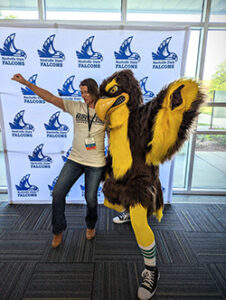
The Workforce Minute
by Megan Murray, Business Operations Coordinator, The Center for Workforce Development and Continuing Education
My name is Megan Murray and I’m the Business Operations Coordinator for The Center for Workforce Development and Continuing Education. It’s always a mouthful when I introduce myself for the first time! Usually the follow up question is, “So, what do you do?” Like most of the full-time staff around here, my tasks include many, but to me the most important one is making projects and ideas come to life.
Since I came onboard in August, I’ve already had the gratification of seeing multiple courses come to fruition including the continuation of free Basic Kurdish, 2 Patient Care Technician Cohorts under the Advancing Workforce Equity Grant, and Child Development Fundamentals for both Parents and Teachers. One course I am especially proud of has been the collaborative efforts with the ESL Department to once again start up a non-credit, High Beginning ESL class.
It all started with a message from Lindsay Smith, ESL Student Specialist. She explained there are many individuals who require additional reading, writing and grammar skills to qualify for the ESL Program at Level 2, but there was not a current course to accommodate. Offering High Beginning ESL would bridge the gap from community ESL classes to the academic ESL program. It had been a couple of years since the last High Beginning ESL course, and the number of registrations had been sparse at times. With a few months of planning, and thanks to the diligence of Ms. Smith, not only did we successfully get this course back up and running, we hit our max with 25 registrations and a waiting list of 4!
I had the pleasure of meeting some of these students during one of my visits to the Southeast Campus. To be met with so many smiling faces reminded me why I started working at Nashville State in the first place. Julie Griggs, the instructor, shared similar feelings with me when I asked what has been her favorite part of this current class, “My favorite part is of course the students! This is a great bunch of eager to learn students, which I love!”
I look forward to more collaborations across the college. The Center for Workforce is not only here to provide career focused training, but to encourage individuals to step into the role of college student! If your department has an idea for a program or course that Workforce can assist with, please do not hesitate to reach out!
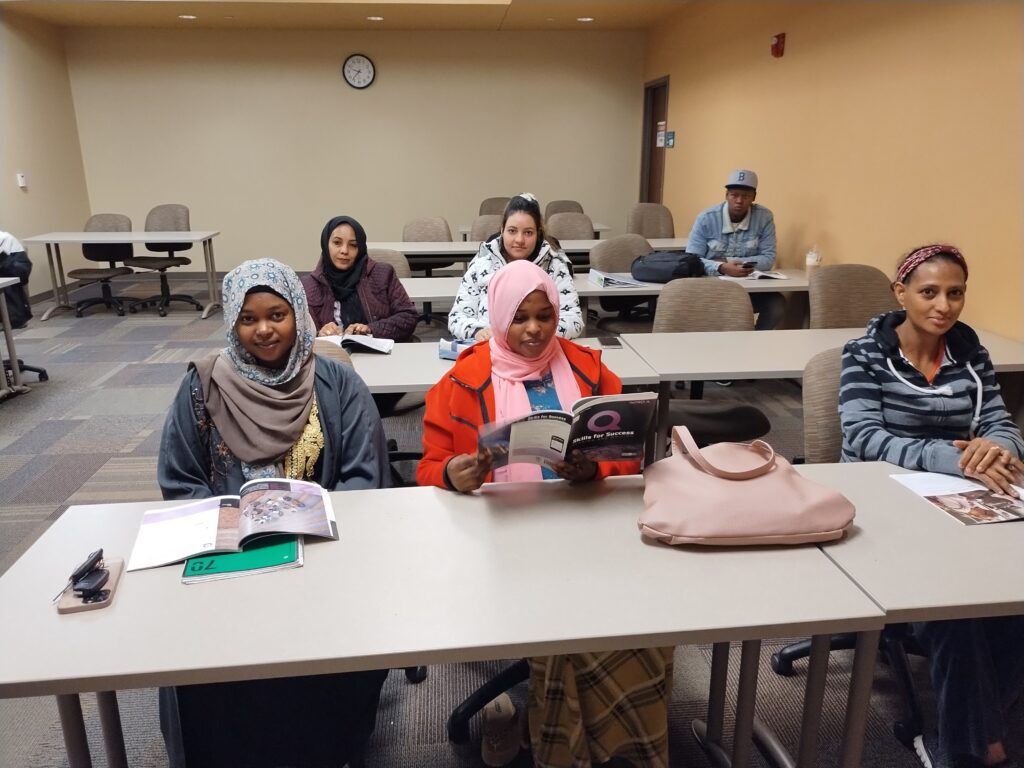
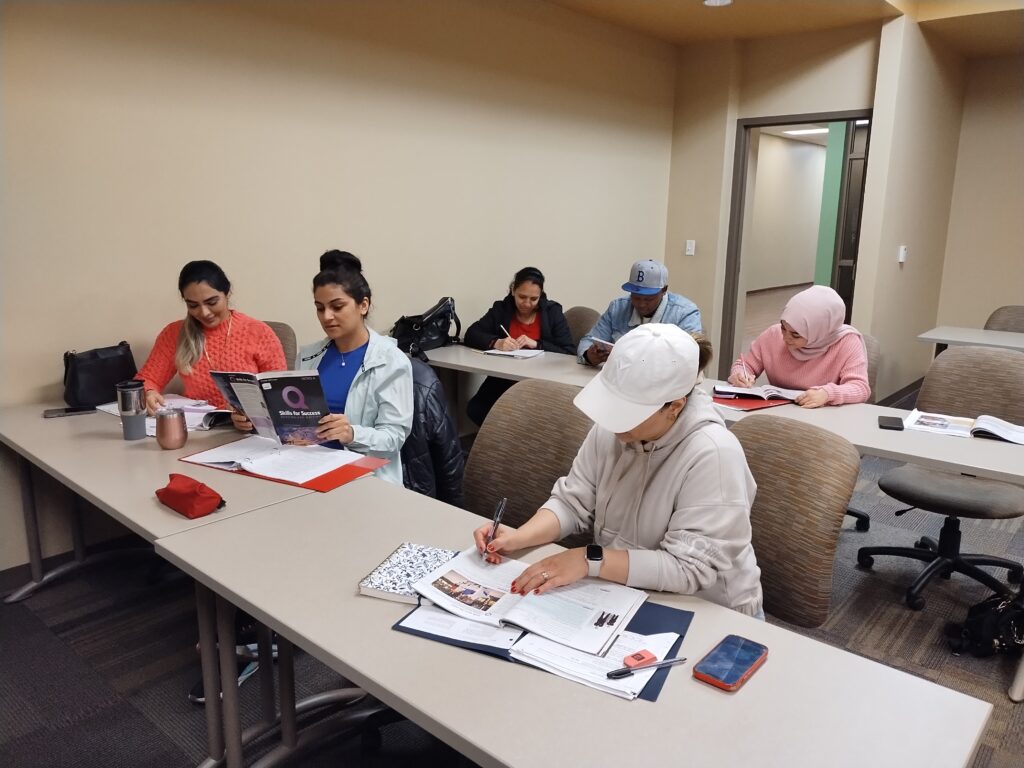
Online Learning Updates
By James Edwards, PhD, Director of Online Learning, TN eCampus Student Liaison
We are excited to announce that Maryellen Nash has joined our team as an Instructional Designer in the Office of Online Learning. Maryellen’s previous role was as a librarian for Nashville State. She is currently pursuing her PhD in Instructional Technology from the University of South Florida and she will be a key contributor to the Online Learning Team.
We also have a spring newsletter update that can be found on our Online Learning home page that we would like to share which includes some new updates to the Yuja Video mobile app and new innovations with Yuja’s Panorama Accessibility tool integrated within our D2L.
Direct link to the newsletter
https://www.nscc.edu/documents/faculty-staff/online-learning/OOL-newsletter-spring24.pdf
Faculty Earn ACUE Microcredential in Inspiring Inquiry and Preparing Life-Long Learners
by Amy S. Bryant, Associate Professor of Communication Studies and Director, The Teaching Center
15 NSCC faculty have earned the ACUE Microcredential in Inspiring Inquiry and Preparing Life-Long Learners. During this semester, these faculty have engaged in professional learning about inspiring inquiry, implemented inclusive and supportive practices in their courses, reflected on the impact of these practices, and planned for how to use these practices in their teaching moving forward. Teaching practices included motivating students, providing clear directions and explanations, using concept maps and other visualization tools, using student achievement and feedback to improve your teaching, using advanced questioning techniques, and developing self-directed learners.
Belkis Barrios
Kristen Bradley
Courtney Foley
Michael Kiggins
Jennifer Knapp
Philip Lee
Diane Leonard
Scott McRoberts
Zach Mills
Barbra Mullaney
Eli Nettles
Marian Soliman
Dara Talibah
Breanna Waller
Beth Youngblood
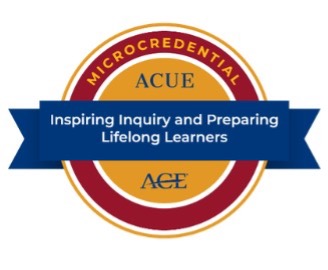
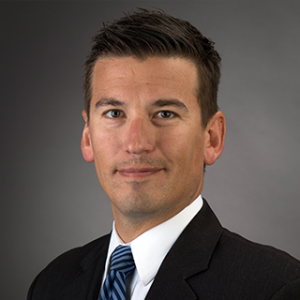
Falcons’ News on NSCC.edu
by Tom Hayden, Associate Vice President, Office of Communications and Marketing
Nashville State STEM Students Keep Busy During Spring 2024 Semester
Tips for Adults Attending College for the First Time of Coming Back, Part 2: Flexible Scheduling
Nashville State’s Elizabeth Lawrence Named Coca-Cola Academic Team Silver Scholar
Tennessee Junior Chef Wins During Competition Held at Nashville State
Nashville State Shines Spotlight on First-generation Students
Nashville State Graduate and Humphreys County Businessman Works to Give Back
Humphreys County High Schoolers and Eighth Graders Learn About Educational to Career Pathways
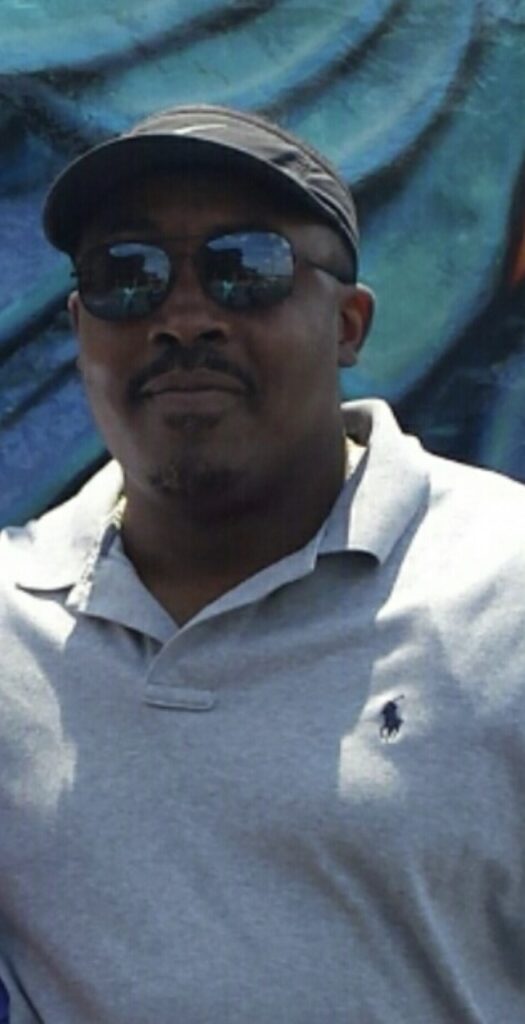
Facilities Management Department Report
by Christopher Bledsoe, Facilities Management Department Manager
Facilities Management Departments February focus has been specifically to move Van Bates Department into his new areas in the H – Building by the 26th. Everyone associated with the Project has been working very hard over the last 45 days to make this happen.
Here is the FM Update by campus:
- Clarksville
- Campus Expansion – The Design Team is reviewing Interior finishes
- Dickson: New Campus
- New Campus Design Team Planning Meetings – Highway Banner installed
- Dickson: Existing Campus
- Heater – Wall Crack – New Workstation
- Humphreys County
- Heater – Water Filter – General Maintenance
- North Davidson
- Floor Surface – Roof – HVAC – Blinds – Ceiling Tiles – Mulch for the Landscaping
- The monument sign has been installed
- Southeast
- New Chiller – Follow Commissioning being reviewed
- Building Refurbishment Project going to Bid
- White Bridge Road
- H – K – C – A Project in progress
- Labs are 95% done
- The paintings on 3rd and 2nd floor is 95% complete
- The flooring on the 3rd and 2nd floor has begun.
- Phase #1 Central Plant Construction Awarded – Phase #2 in Engineering
- Mulch for the Landscaping
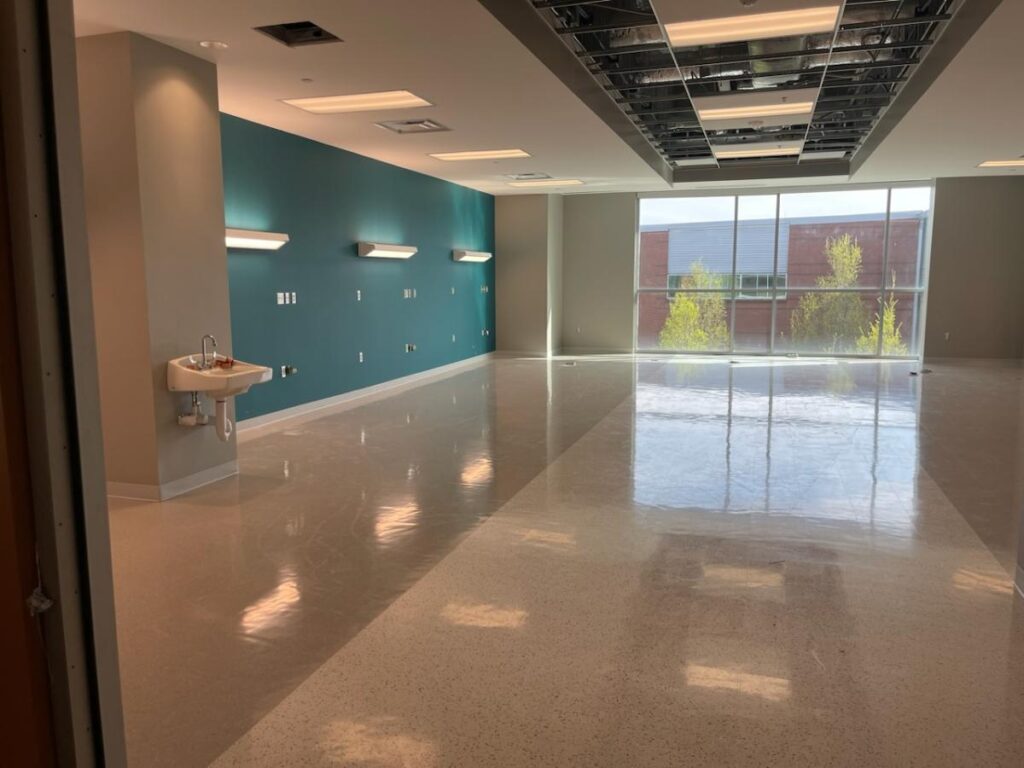
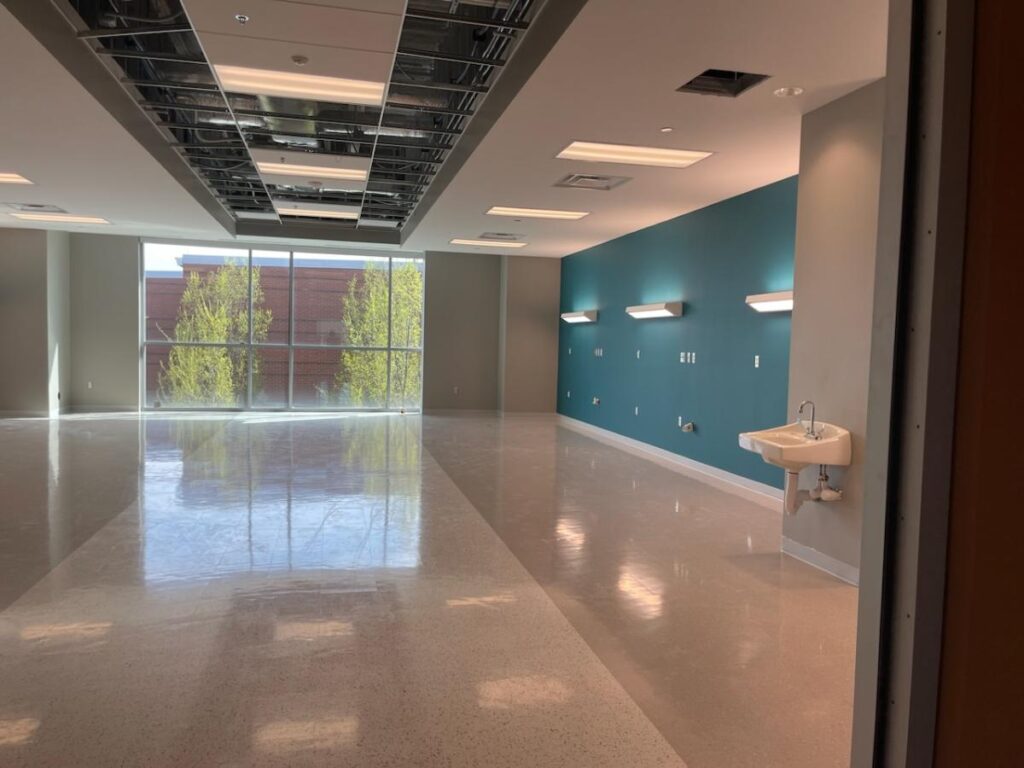
The FM Teams appreciates the warmer weather in our support of the NSCC seven campuses.
The NSCC Voice
Founded 2017
Cliff Rockstead, Managing Editor
David Gerth, Assistant Managing Editor
Isabella Putman, Layout Editor
March 2024 Contributors
Dr. Gracie Andrews King
Christopher Bledsoe
Amy S. Bryant
Karina Davis
Dr. James Edwards
Rosemary Hackney
Tom Hayden
Dr. Shanna L. Jackson
Megan Murray
Harlan Pease
Jessica Rabb
Telaina Wrigley
